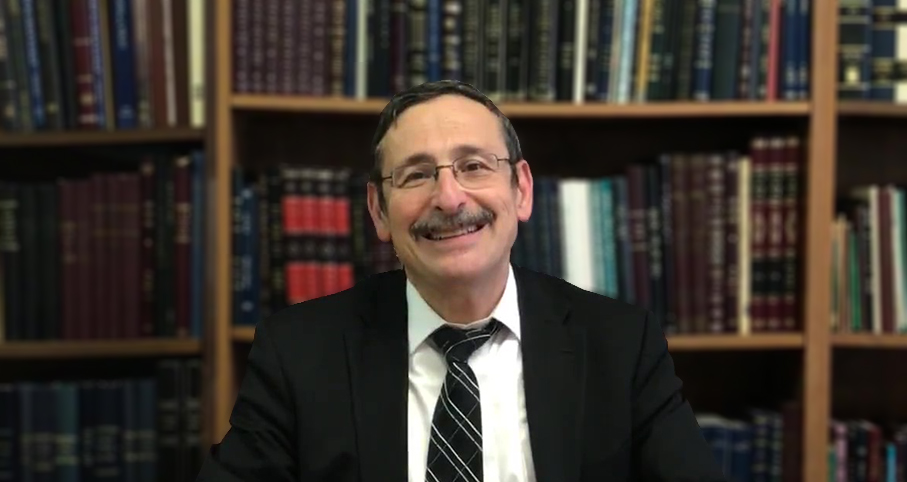Beit Midrash
- Sections
- Chemdat Yamim
- P'ninat Mishpat
Case: The plaintiff (=pl) hired his friend, the defendant (=def), a part-time sofer, to write a sefer Torah. The contract states a price of 130,000 shekels plus VAT and says that the writing will be mehudar. It also states that pl saw samples of def’s writing and that pl has the right to demand the switching of sections of lower levels of quality without charge, as long as Rabbi X agrees this is appropriate. Toward the end of the writing, after pl paid 113,780 shekels, pl experienced financial problems, looked to sell the sefer Torah, and asked for two sections to show to merchants. Several experts told him that the sefer would be worth, when finished, 70-80,000 shekels. Def presented a letter, from an expert with whom he is connected, saying that the writing is proper. Pl also sent def an email during the process in which he praised def’s work. Originally, pl asked either: 1) receiving a completed kosher sefer and a return of the money above the 80,000 shekel it is worth, or 2) employing mekach ta’ut (invalid purchase) and a return of all the money. Def argues that the sefer Torah is fine and worth the price and that, in any case, any kosher sefer is defined as mehudar. Also, since pl saw the work before agreeing and could have had the written sections checked all along, it is too late to claim mekach ta’ut. Also, a major reason that pl chose def is that he considers def a tzaddik, and this has not changed.

P'ninat Mishpat (802)
Various Rabbis
539 - Dissatisfaction with the Quality of a Sefer Torah – Part I
540 - Dissatisfaction with the Quality of a Sefer Torah – Part II
541 - Deceptive Developer
Load More
The sugya (Bava Metzia 49b-51a) rules that regarding mekach ta’ut due to mispricing, one has the amount of time it takes to ask an expert for an appraisal. Rashi explains that after this, we assume he was mochel. The gemara (Ketubot 75b) says that a new husband cannot dissolve a marriage based on physical defects, if there is a public bathhouse in town so that he could have inquired about her physical state. The Rif and Rambam (Mechira 15:3) say that mekach ta’ut can be claimed later, but not after the buyer used the object after discovering the blemish. The Maggid Mishneh (ad loc.) cites an opinion that there is also a set deadline regarding blemishes. The Mishneh Lamelech says that the Rambam disagrees with this Maggid Mishneh, and the S’ma (332:10) and Pitchei Teshuva (332:1) disagree who to follow. The Aruch Hashulchan (CM 332:5) explains the Mishneh Lamelech, saying that a buyer does not have to suspect that the seller tricked him, and therefore it is not a sign of mechila. However, it is difficult to extract money against the Maggid Mishneh (see Techumin vol. XXII).
Our case is different from the standard. First, it is difficult to find an expert, and a sefer Torah’s value is not a cut and dry question. Also, one does not usually check before the product is complete. Also, several Acharonim say that if the seller said explicitly that there are no blemishes and the buyer believes him, he does not lose rights when he finds out. Regarding the fact that pl received samples in advance, a sample’s quality is not an assurance that the present job will come out as well. Regarding the claim that pl was interested in the sofer as a person, that could justify slightly lower quality/higher price, but not to this extent.
Therefore, if pl returns the scrolls, he is entitled to a full refund.

P'ninat Mishpat: Multiple Agreements and Parties – part II
based on ruling 80082 of the Eretz Hemdah-Gazit Rabbinical Courts
Beit Din Eretz Hemda - Gazit | Kislev 5786

P'ninat Mishpat: Late and Flawed Apartment
based on ruling 82174 of the Eretz Hemdah-Gazit Rabbinical Courts
Beit Din Eretz Hemda - Gazit | Kislev 5786

P'ninat Mishpat: Did Any Furniture Go to the Buyer? – part I
based on ruling 84093 of the Eretz Hemdah-Gazit Rabbinical Courts
Beit Din Eretz Hemda - Gazit | Kislev 5786

P'ninat Mishpat: Smoking Rights in a Rental? – part I
based on ruling 85076 of the Eretz Hemdah-Gazit Rabbinical Courts
Beit Din Eretz Hemda - Gazit | Tishrei 5786

Various Rabbis
Various Rabbis including those of of Yeshivat Bet El, such as Rabbi Chaim Katz, Rabbi Binyamin Bamberger and Rabbi Yitzchak Greenblat and others.

Moreshet Shaul: A Crown and its Scepter – part II
Based on Siach Shaul, Pirkei Machshava V’Hadracha p. 294-5
Av 5785

Proper Foundations of the Home
Ein Aya Shabbat Chapter B Paragraph 192
Tevet 12 5777

Support for Sons Not Living With Their Father
5770



























